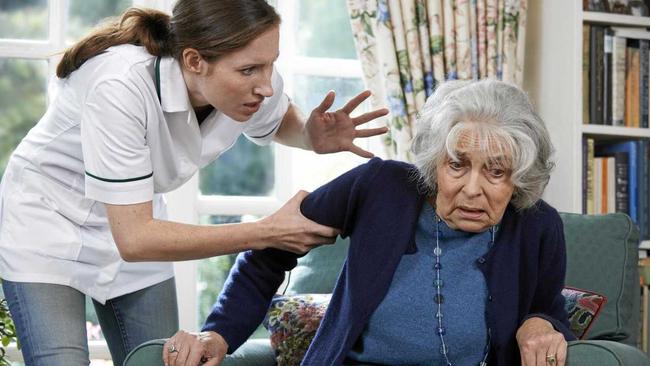Help for those being abused
Elder abuse can be physical, financial and emotional

Ipswich
Don't miss out on the headlines from Ipswich. Followed categories will be added to My News.
THERE'S no excuse for elder abuse. That's the message widely distributed by the Queensland Government through many avenues. But are you aware of what constitutes abuse of the elderly?
According to the promotional material: "Elder abuse is any act within a relationship of trust that results in harm to an older person. The most common forms of elder abuse include emotional abuse, financial abuse, physical abuse and neglect sexual abuse can also occur.
"Elder abuse can affect people of all cultures, education and socio-economic status. Sadly, the majority of abusers are close family members, specifically, adult sons or daughters, spouses and other close relations."
But, are you aware what constitutes "abuse"?
There are many types of abuse as well, according to the information. Sometimes it may be hard to know if what one is going through counts as elder abuse.
It is also known that people who commit elder abuse try to excuse their behaviour. You may have heard some of these excuses, or you may feel you have to excuse the abusive behaviour of your son or daughter or grandchild.
Examples of elder abuse include financial abuse, emotional abuse, neglect, physical and sexual abuse and often elder people experience many types of abuse at the same time.
For instance, many people committing financial abuse try to justify why they feel entitled to skim an older person's pension or steal money out of their wallet or bank account.
They may have been given permission to access an account once and then keep taking money from the account. If they don't have consent to continue taking the money or using the key card, this is elder abuse.
Other types of financial abuse include, selling personal belongings without permission, misusing an enduring power of attorney by taking money or property improperly, forcing the changing of a will, denying access to, or control of funds, constantly asking for money, not letting an elder see their bank or financial statements and making them sign documents without letting you read through them alone.
Emotional abuse and neglect include humiliation or harrasment, threatening eviction or putting in a nursing home against the elder's wishes, threatening to hurt a pet or breaking belongings, preventing an elder seeing family or friends, preventing family or friends from visiting, using emotional blackmail such as, 'I've given up my life to care for you, I am owed something!', 'If you love me, you'll do this for me' and even threatening to harm themselves, preventing service providers from providing help.
They may be viewed as likely to alert police to the situation and a person with responsibility for providing care or neglecting physical, medical or emotional needs.
Sadly, sometimes people will also use physical abuse to force the transfer of assets if they do not feel they are getting their fair share.
If you are experiencing any of these issues or if you suspect someone you know is going through, phone the Elder Abuse hotline Monday to Friday 9am-5pm on 1300651192.


